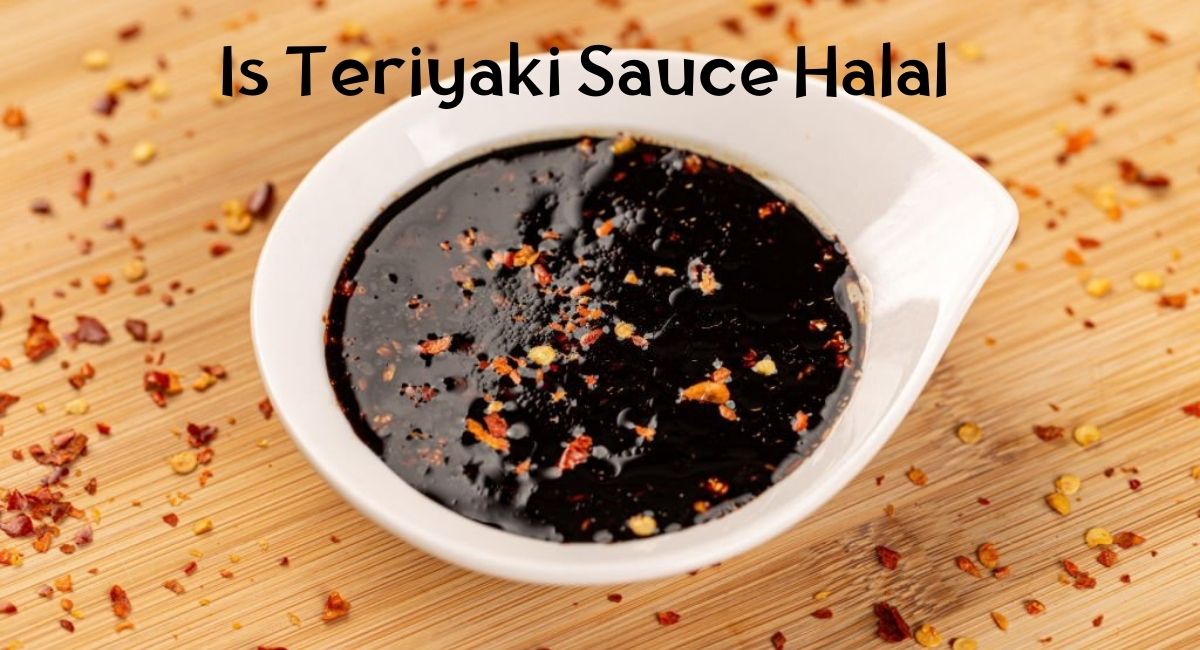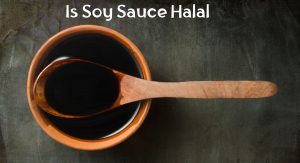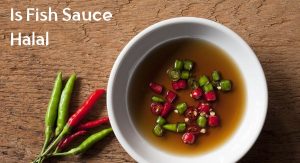Teriyaki sauce is a popular condiment in Japanese cuisine, known for its sweet and savory flavor profile. For individuals who follow a halal dietary lifestyle, the question arises: Is teriyaki sauce halal or haram? To determine the halal status of teriyaki sauce, it is essential to understand its ingredients and the considerations involved in determining its compliance with halal guidelines.
Teriyaki sauce typically consists of soy sauce, mirin (a sweet Japanese rice wine), sugar, and various seasonings. While the primary ingredients may seem permissible, the halal status of teriyaki sauce depends on several factors, including the source and production process of its components. It is crucial to examine these aspects to make an informed decision about consuming teriyaki sauce within the boundaries of halal dietary practices.
In this article, we will explore the key ingredients of teriyaki sauce, discuss potential concerns related to its halal status, and highlight considerations for individuals seeking halal-compliant alternatives.
Is Teriyaki Sauce Halal
Teriyaki sauce is typically made with a combination of soy sauce, sugar, vinegar (With a Very Low percentage), and spices, which are considered halal, so Teriyaki Sauce is Halal.
Some teriyaki sauces may contain alcohol, which is not permissible in Islamic dietary laws and makes it non-halal. some store-bought teriyaki sauces may contain artificial additives like high fructose corn syrup, dextrose, lactic, and modified corn starch, among others, which may not be halal.
There are halal-certified teriyaki sauce brands available in the market. Here are some examples:
- Yamamori Halal Teriyaki Sauce: This is an authentic Japanese teriyaki sauce that is halal-certified. It is a seasoning sauce for grilling that is easy to use and does not require marinating before cooking. It is recommended for dishes like chicken teriyaki and salmon teriyaki
- Otafuku Teriyaki Sauce Halal: Otafuku Sauce Co., Ltd. produces a Teriyaki Sauce that is halal-certified. This sauce is described as thick and sweet, based on Japanese soy sauce. It is suitable for grilled dishes, both meat, and fish, and for marinating and stir-frying.
- Soy Vay Veri Veri Teriyaki Marinade & Sauce: This is a Kosher-certified teriyaki sauce that is also halal-friendly. It is known for its distinct Asian flavor accents and is made from high-quality ingredients such as soy sauce, expeller-pressed sesame oil, ginger, garlic, onion, and toasted sesame seeds. It is a versatile sauce that can be used as a marinade, dip, or sauce for various dishes.
- Waten Teriyaki Sauce: This brand offers a halal-certified teriyaki sauce made from soy sauce, ginger, sugar, and other halal ingredients. It is a popular household staple in many Asian homes and is used in dishes like yakitori (grilled chicken skewers).
It is possible to make halal teriyaki sauce at home using halal ingredients such as soy sauce, ginger, garlic powder, brown sugar, and honey.
Is Kikkoman Teriyaki Sauce Halal
Yes, Kikkoman Teriyaki Sauce is halal. Kikkoman, a leading Japanese soy sauce brand, has launched two halal sauces – the Garlic Teriyaki Sauce and the Black Pepper Teriyaki Sauce. They are made with ingredients derived from naturally fermented soy sauce and are suitable for use in Japanese dishes.
Both Kikkoman Teriyaki Sauces are certified as halal by halal certification authorities. They contain a blend of naturally brewed soy sauce, brown sugar, vinegar, and spices. The soy sauce used is Kikkoman’s halal-certified soy sauce which does not contain any wheat or alcohol. It is made using special technology to produce a similar color, taste, and fragrance to the regular one.
What is Teriyaki Sauce
Teriyaki sauce is a popular Japanese sauce that adds a lustrous shine and a salty-sweet flavor to grilled meats and vegetables. It is a soy sauce-based sauce that is moderately thick reddish-brown liquid with visible specks of various spices and flavoring
The history of teriyaki sauce is an interesting blend of Japanese and international influences. Teriyaki (kanji: 照り焼き) is a cooking technique used in Japanese cuisine that involves broiling or grilling foods with a glaze of soy sauce, mirin (a sweet Japanese rice wine), and sugar. The word “teriyaki” itself is derived from “teri,” which means luster or shine, and “yaki,” which refers to the grilling or broiling method.
The origins of teriyaki sauce can be traced back to Japan in the 17th century during the Edo period. During this time, the teriyaki cooking method gained popularity, particularly with fish such as yellowtail, salmon, and mackerel being commonly used. The traditional preparation involved dipping or brushing the meat with the sauce multiple times during the cooking process.
Interestingly, while teriyaki sauce originated in Japan, its popularity and evolution have been influenced by international factors. The history of teriyaki sauce took an unexpected turn when Japanese immigrants arrived in Hawaii. In Hawaii, they adapted the sauce to suit local ingredients, such as pineapple juice and ginger, resulting in a unique Hawaiian teriyaki flavor.
Over time, teriyaki sauce made its way to the United States, where it gained popularity and became associated with Japanese cuisine. However, it’s important to note that the teriyaki sauce commonly found in the United States is often different from the traditional Japanese version.
Today, teriyaki sauce has become a beloved and widely recognized condiment globally. Its sweet and savory flavor profile has made it a popular choice for marinades, glazes, and dipping sauces for various meats, fish, and vegetables. Teriyaki sauce has also found its way into fusion cuisine, where it has been adapted and incorporated into dishes outside of traditional Japanese cooking.
Types of Teriyaki Sauce

Teriyaki sauce comes in various types, each with its unique ingredients and flavor profiles. Here are some types of teriyaki sauce:
- Soy-Based Teriyaki Sauce: The most common type of teriyaki sauce uses soy sauce as the base ingredient. Soy sauce provides the savory umami flavor that is characteristic of teriyaki sauce. Other common ingredients in soy-based teriyaki sauce include mirin (a sweet Japanese rice wine), sugar, and sometimes sake.
- Gluten-Free Teriyaki Sauce: For those who are gluten intolerant or following a gluten-free diet, there are gluten-free versions of teriyaki sauce available. These sauces use gluten-free soy sauce or tamari as a substitute for regular soy sauce.
- Soy-Free Teriyaki Sauce: Some teriyaki sauce recipes exclude soy sauce altogether. Instead, they use alternative ingredients like mirin, sake, and sugar to create a similar sweet and savory flavor profile.
- Homemade Teriyaki Sauce: Many people prefer making their teriyaki sauce at home to have full control over the ingredients and flavors. Homemade teriyaki sauce typically consists of soy sauce, mirin, sugar, and sometimes additional ingredients like ginger and garlic for added depth of flavor.
- Japanese Restaurant-Style Teriyaki Sauce: Japanese restaurant-style teriyaki sauce is known for its authentic flavors and is often used in professional kitchens. This sauce typically combines soy sauce, mirin, sugar, and sometimes sake or rice vinegar to achieve the desired balance of sweet and savory flavors.
- Teriyaki Glaze or Marinade: Teriyaki glaze or marinade is a thicker and more concentrated version of teriyaki sauce. It is often used as a glaze for grilling or broiling meats and vegetables, or as a marinade to infuse the flavors into the ingredients before cooking.
- Teriyaki Dipping Sauce: Teriyaki dipping sauce is a thinner consistency sauce used for dipping various foods like sushi, dumplings, or grilled skewers. It is typically made with soy sauce, mirin, sugar, and sometimes additional ingredients like ginger or sesame oil for extra flavor.
These are just a few examples of the types of teriyaki sauce available. The specific ingredients and flavors can vary depending on personal preferences, regional variations, and specific recipes. Experimenting with different types of teriyaki sauce can add versatility and excitement to your culinary creations.
Teriyaki Sauce Ingredients
Traditional teriyaki sauce typically consists of a few key ingredients that create its signature sweet and savory flavor. Here are the common ingredients used in traditional teriyaki sauce recipes:
- Soy Sauce: Soy sauce is the base ingredient in teriyaki sauce, providing a savory umami flavor. It is typically made from fermented soybeans and wheat.
- Mirin: Mirin is a sweet Japanese rice wine that adds a subtle sweetness and depth of flavor to the sauce. It helps to balance the saltiness of the soy sauce.
- Sugar: Sugar, usually in the form of granulated sugar or brown sugar, is added to teriyaki sauce to provide sweetness and help create the caramelized glaze when cooked.
- Sake: Sake, a Japanese rice wine, is sometimes included in traditional teriyaki sauce recipes. It adds complexity to the flavor profile and helps tenderize the meat.
These four ingredients—soy sauce, mirin, sugar, and sake—are the main components of traditional teriyaki sauce. The ratios and specific measurements may vary depending on the recipe and personal preferences. Some recipes may also include additional ingredients like garlic, ginger, or cornstarch to enhance the flavors or thicken the sauce.
For teriyaki sauces made in the United States, the ingredients may vary depending on personal preferences and regional variations. Here are some common ingredients used in teriyaki sauce recipes in the United States:
- Soy Sauce: Soy sauce is a key ingredient in teriyaki sauce, providing the savory umami flavor. It is typically made from fermented soybeans and wheat.
- Sugar: Sugar, often in the form of granulated sugar or brown sugar, is added to teriyaki sauce to provide sweetness and help create the caramelized glaze when cooked.
- Mirin: Mirin, a sweet Japanese rice wine, is sometimes used in American teriyaki sauce recipes to add a subtle sweetness and depth of flavor.
- Ginger: Fresh or ground ginger is commonly added to teriyaki sauce for its aromatic and slightly spicy flavor.
- Garlic: Minced or crushed garlic is frequently included in teriyaki sauce recipes to enhance the savory taste.
- Cornstarch: Cornstarch is often used as a thickening agent in teriyaki sauce, giving it a slightly thicker consistency.
- Vinegar: Some recipes may call for rice wine vinegar or apple cider vinegar to add tanginess and balance the flavors.
- Sesame Oil: Sesame oil is occasionally added to teriyaki sauce for its distinct nutty flavor and aroma.
Halal Alternatives to Teriyaki Sauce

When looking for halal alternatives to teriyaki sauce, there are a few options available. Here are some suggestions:
- Halal Mirin: Mirin is a traditional sweet Japanese cooking rice wine that is commonly used in teriyaki sauce. Fortunately, there are halal-certified mirin-style seasonings available, such as the one made by the brand Hinode. These halal versions of mirin can be used as a substitute in teriyaki sauce recipes.
- Homemade Halal Teriyaki Sauce: You can make a halal version of teriyaki sauce at home by using alternative ingredients.
- Barbecue Sauce: Barbecue sauce can be used as a substitute for teriyaki sauce. While it has a different flavor profile, it provides a similar sweet and savory taste. When using barbecue sauce as a substitute, consider adjusting other seasonings to complement the flavor.
- Other Asian Sauces: Other Asian sauces can be used as substitutes for teriyaki sauce, such as kecap manis (sweet soy sauce), ponzu sauce, Korean BBQ sauce, hoisin sauce, or oyster sauce. These sauces may have different flavor profiles, so it’s important to adjust the other ingredients in the recipe accordingly.
Wanna know the halal status of other sweet and tangy sauces like Teriyaki? Read these articles below.
Is BBQ Sauce Halal: Uncover the halal compliance of BBQ sauce, a favorite condiment for grilled dishes, and ensure it aligns with your dietary preferences.
Is Ketchup Halal: Dive into the world of ketchup to learn if this ubiquitous condiment is indeed halal and suitable for your culinary choices.
Frequently Asked Questions
1. Does teriyaki sauce have alcohol?
Teriyaki sauce can sometimes contain alcohol as an ingredient. Traditional teriyaki sauce recipes often include mirin, which is a sweet Japanese rice wine with a low alcohol content.
2. What kind of alcohol is in teriyaki sauce?
The most common type of alcohol found in teriyaki sauce is mirin, a sweet Japanese rice wine. Mirin has a lower alcohol content compared to other types of alcoholic beverages. It is important to note that the alcohol in mirin is typically used for cooking purposes and is often cooked off during the preparation of teriyaki sauce.
3. What flavor is teriyaki sauce?
Teriyaki sauce has a flavor profile that is characterized by a balance of salty, sweet, and savory notes. It typically combines the umami taste of soy sauce with the sweetness of mirin or sugar. The sauce can also have hints of garlic, ginger, and other seasonings, depending on the recipe or brand.
4. Is teriyaki good or bad for you?
Teriyaki sauce can be enjoyed in moderation as part of a balanced diet. While it adds flavor to dishes, it is important to note that teriyaki sauce is often high in sodium due to its soy sauce content. Excessive sodium intake can be problematic for individuals with certain health conditions, such as high blood pressure. Therefore, it is advisable to consume teriyaki sauce in moderation and consider lower-sodium alternatives or homemade versions to control the sodium content.
5. Which sauce is most similar to teriyaki?
Several sauces are similar to teriyaki sauce. Some of the most common substitutes are Soy Sauce with Sugar, Oyster Sauce, Ponzu Sauce, and Korean Galbi Sauce. It’s worth noting that while yakitori sauce is similar to teriyaki sauce, it is not the same thing. Yakitori sauce uses mirin in addition to soy sauce and sugar, while teriyaki sauce uses honey instead of mirin. Similarly, hoisin sauce is not a good substitute for teriyaki sauce because it has a different flavor profile and is made with fermented soybean paste instead of regular soy sauce.








